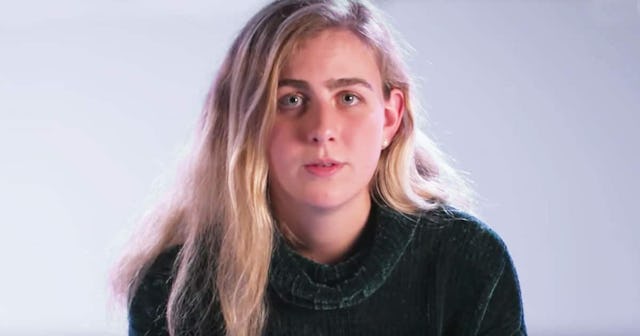Runner Writes Damning Op-Ed About Nike: 'I Was Emotionally And Physically Abused'

Runner Mary Cain says her coaches were convinced she had to get ‘thinner, and thinner, and thinner’
Former Nike runner Mary Cain has written a scathing op-ed against the company and her former coaches, saying that the abusive training system was so focused on her weight, she missed her period for three years and broke multiple bones in the process.
Cain, who was once considered the fastest female runner in America, gave up a college career to join the Nike Oregon Project. The project was comprised of a long-distance running team established by the company and led by coach Alberto Salazar. In the New York Times op-ed video, Cain says she joined Nike to become the “best female athlete ever” but instead was emotionally and physically abused.
Cain says when she joined the program, an all-male staff greeted her at Nike to train. All of them told her that in order “to get better” she had to be “thinner and thinner and thinner.” Cain also says there was no certified nutritionist on staff to help her or her teammates through the training process. She says Salazar told her she needed to weigh 114 pounds, and during the rigorous, unhealthy training process, her menstrual cycle stopped and she broke five bones. All of this led to her experiencing suicidal thoughts — she began cutting herself under all of the pressure to perform.
“Young girls’ bodies are being ruined by an emotionally and physically abusive system,” Cain says. Missing periods means your body doesn’t contain the necessary levels of estrogen it needs to maintain optimal bone health, which is why Cain suffered so many breaks.
Another runner, Kara Goucher, trained with the same program under Salazar until 2011. She tells the Times she, too, experienced a similarly toxic environment.
“When you’re training in a program like this, you’re constantly reminded how lucky you are to be there, how anyone would want to be there, and it’s this weird feeling of, ‘Well, then, I can’t leave it. Who am I without it?’” Goucher says. “When someone proposes something you don’t want to do, whether it’s weight loss or drugs, you wonder, ‘Is this what it takes? Maybe it is, and I don’t want to have regrets.’ Your careers are so short. You are desperate. You want to capitalize on your career, but you’re not sure at what cost.”
“Training” female athletes in the same way men and boys are trained, and expecting them to uphold the same physical standards — and endure them over an elongated period of time — we’re telling women and young girls who participate in sports that their needs, health, and mental well-being don’t matter. That they’re only “good” if they can keep up with male bodies. No one should ever feel that this type of abuse is “what it takes” to succeed as an athlete.
“We’ve recognized Nike can do more, and there is an important opportunity for the sports industry collectively to evolve to better support female athletes,” a company spokeswoman says.
Cain says people around her, including her coaches, were aware that she was engaging in self-harm. No one reached out to help her or take action. Her parents were “horrified” once they realized how their daughter was being abused. “They bought me the first plane ride home. They were like, ‘Get on that flight, get the hell out of there,” she says. “I wasn’t even trying to make the Olympics anymore, I was just trying to survive.”
This article was originally published on